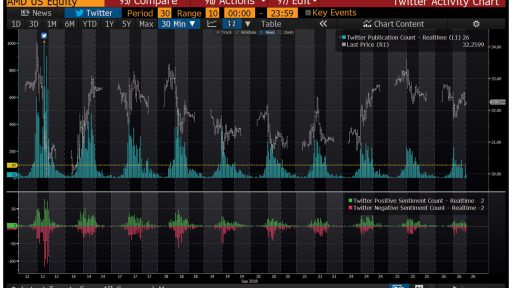- Home
- >
- Cryptocurrencies / Algotrading
- >
- The problem with Machine learning algorithms

The problem with Machine learning algorithms

Machine Learning itself allows investors to encompass a vast database, such as publications in a social network, in a way that no ordinary person can do. Despite its tremendous potential, however, it inspires mixed feelings. T. The Eurekahedge AI Hedge Fund Index, which, after the return of 13 hedge funds using machine learning, grew by only 7% annually for the past five years, while the S & P500 has around 13% return on an annual basis. In September, the index collapsed by 5%.
According to Marcos Lopez de Prado, Head of Machine Learning at AQR Capital Management, the potential stumbling block for machine learning strategies is the low signal-to-market ratio. "Machine learning algorithms will always identify a model, even if it does not exist". - says Lopez. In other words, algorithms can see fake market movements as a market model and trigger a fake strategy signal. "It takes deep knowledge of the markets to apply the machine learning algorithm successfully." - says Lopez
Nigol Koulajian shares this view. The founder of Quest Partners, based a systematic macro hedge fund in New York, says the so-called " quants due to financial programs and the work of high-tech companies are expected to create algorithms at a much higher level of complexity and precision that is actually being sought in the financial world. Koulajian says, "They come with the attitude that the world is theirs, that they will take it over with its large databases." In the financial world, however, markets are not static and markets are not closed systems like a chess game. "A drop is only available in the sea that can effectively erase your profitability within 20 years."
Take into account a risk strategy that worked well for a decade after the financial crisis. "Everyone is buying at the bottom." - notes Koulajian. "All these people have actually learned to suppress volatility, and if machine learning is used, the strategy can be implemented in all sorts of ways." The risk, according to Koulajian, comes from the fact that the relentless bullish market, which proved that this strategy works nicely owing only to liquidity from the central bank - and we are currently seeing this retreat, while the risk suggests that the S & P500 may fall by about 30%, and in August, the CBOE Skew Index, following losers, reached record levels. If you buy the bottom by machine learn ing you better say you used a sophisticated model, but you'd actually lose sight of the bigger risk that's hiding.
Machine learning is not new, says Robert Frey. Frey in the late 1980s created his own hedge fund, which was later swallowed up by Renaissance Technologies, where the fund later became the core of the statistical analysis and algo strategies at the Medallion Fund. "You hear all these things about AI and machine learning," Frey said, "But more of these techniques and technologies have existed for decades and we have actually used some of them in Renaissance." The fundamental processes we are talking about are a real combination of intense statistical analysis, computer calculations, and finally, we come to the so-called neural-network-type branch, where all models can be seen to be classed.
After his retirement from Renaissance in 2004, Frey began his quantitative financial program at Stony Brook University and opened his family office, which became FQS Capital Partners. In FQS, Frey uses algo techniques to assess hedge funds, focusing on precisely defining their behavior and applying it to systemic market and economic trends.
Jamie Wise, CEO of Periscope Capital, a $ 250 million Toronto-based hedge fund, says the main idea behind AI is that it is omniscient and that it will take away our jobs. The Fund has developed a strategy based on neural networks and machine learning, and it remains just a tool for it. A tool with a very specific task.
What are the best applications of machine learning in the financial world? Lopez de Prado has several favorites. One of these applications, for example, is so-called. factor investing. The application of traditional, economic methods with linear regression in order to find the investment factor. There is no reason to believe that these factors will be linear. Rather, the newly discovered factors will be the near future that will respond to non-linear effects.
Another application can be found in forming a portfolio structure. Algorithms can shape models of complex data structures much better than Markowtiz's decision to construct a portfolio, and its performance is much better.
Machine learning is also useful in detecting counterfeit strategies, not just in extracting massive data rows. More empirical discoveries in the financial world are fake, mostly on them
Source: Bloomberg Finance L.P.
Graphs: Used with permission of Bloomberg Finance L.P.
 Trader Martin Nikolov
Trader Martin Nikolov If you think, we can improve that section,
please comment. Your oppinion is imortant for us.






